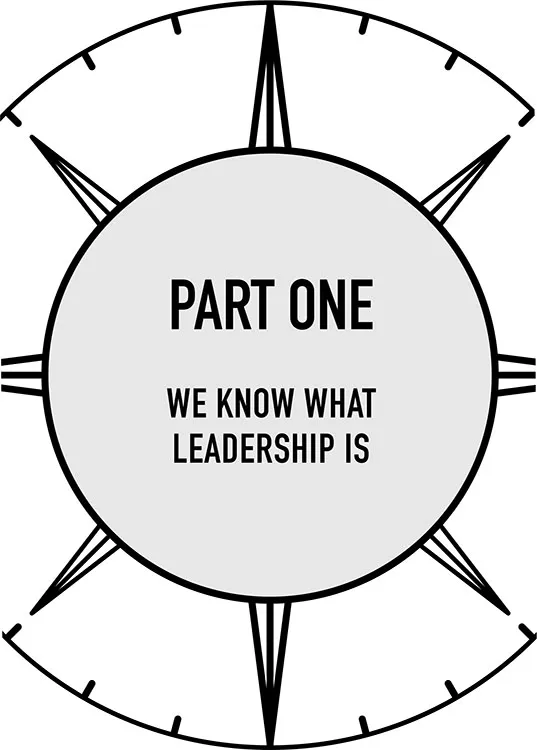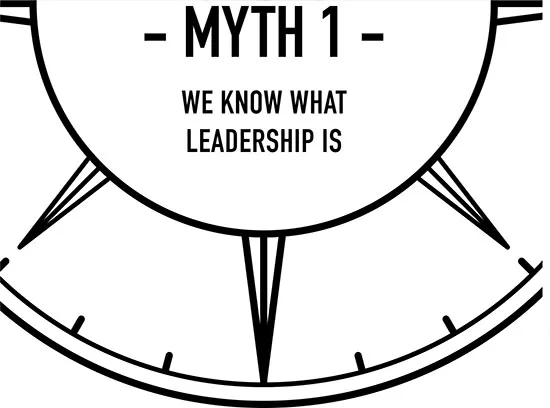The nature of the myth
Defining leadership is like searching for smoke signals in the fog. It can be an exercise in futility. We all think we know what leadership is like, but when we try to agree on a common definition we find ourselves grappling with the fog. This matters because if we cannot agree what leadership is, then judging, discussing or developing leaders becomes impossible.
To understand this myth, we will look at leadership from four perspectives.
Common sense
We all know a good leader when we see one: Churchill, Martin Luther King, Nelson Mandela and Mother Theresa. But what about Mao Tse-tung or Stalin: should they be revered as national saviours or reviled as mass murderers? Were they good leaders or not?
We need to define what we mean by a ‘good’ leader. If good means effective, then we can include many dictators and empire builders down the ages. Alexander the Great was named ‘the Great’ by the Greeks who were on the winning side. The Persians named him ‘Alexander the Barbarian’ for destroying their civilization. Being a good leader and being an effective leader are different concepts.
We can try applying common sense, but common sense can be deeply misleading. It was once common sense to think that the sun rotated around a flat earth; all you had to do was to believe the evidence of your eyes which showed the sun moving through the sky and the world was flat to the horizon.
Common sense seems not to help, so let us turn to practising managers who deal day to day with effective and less effective leaders. They should know what leadership is about.
Practising managers
Here is the output of a typical workshop1 where attendees were asked to define the qualities of a leader:
- ambitious and humble;
- directive and empowering;
- visionary and practical;
- big on ideas and on people;
- coaching and controlling;
- inspiring, charismatic, authentic and regular.
On a good day we might believe that we have all of these talents. On most days we will recognize that no one can embody this cornucopia of contradictions.
Successful leaders
It does not help when we look to successful leaders to define leadership. As a research exercise, 100 successful leaders were asked to define leadership.2 It soon became clear that they were not describing leadership: they were describing themselves.3 They all assumed that their personal success formula was a universal success formula. But we know that not many leaders succeed when they move into a different industry; great politicians rarely make great business people. The United States is conducting an experiment to see if the opposite is true: can a rich business person be a successful political leader?
If you have the misfortune to read the autobiographies of successful business leaders you will see they fall into the same trap: they think their success formula is a universal one. These autobiographies are particularly dangerous. Anyone who feels the urge to write an autobiography is likely to be a larger-than-life individual interested in their own self-promotion and immortality. Some of these people can be exceptional leaders, but the problem with these exceptional leaders is exactly that: they are exceptional. Most leaders are not like that, and most of us cannot aspire to be like that, even if we wanted to be.
Academic research
This is deeply dangerous territory. Every academic has their own definition of leadership which they guard jealously. Anyone who argues is likely to suffer the academic equivalent of being burned at the stake for heresy. The challenge for the academic world is that there is no scientific way of establishing what leadership is. There are endless hypotheses, but every hypothesis can be disproven. Even the definitions provided by top thinkers such as Drucker, Kotter and Bennis are inconsistent and do not work.4
One paper5 found 26,000 academic articles on leadership, which it was able to distil down to 90 variables. That is not a recipe for leadership, it is a recipe for confusion.
Why this myth matters
By now we are in danger of slumping into fashionable postmodern scepticism which holds that there is no truth, there is only what we choose to believe. But if no one has any idea what leadership is, we will struggle to develop leaders. You cannot go on a leadership journey, or any journey, if you do not know what the destination is.
So we need some way forward. We need a working definition of leadership which will allow us to make some progress.
So far, we have looked at the qualities of a good or effective leader. And the result is confusion. So it is time to look at leadership from another perspective. Instead of looking at the qualities of a leader, look at what a leader achieves: judge leaders by what they achieve, not what they do or what they are. Looking at what leaders do results i...


